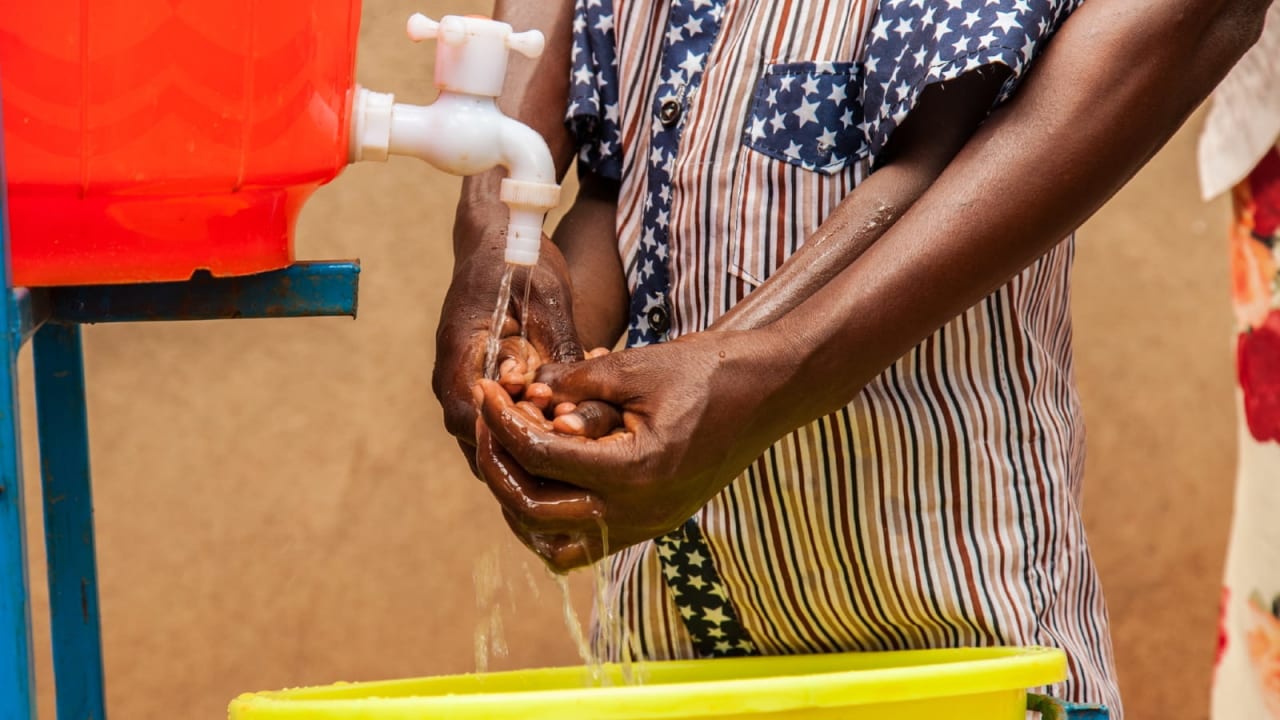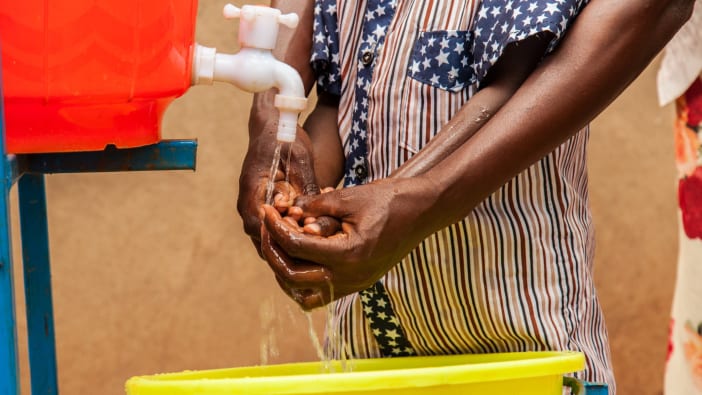This report looks at the role of the church, and faith-based groups in general, in helping communities to achieve safe sanitation and hygiene practices.
Research reports
Keeping communities clean
The church’s response to improving sanitation and hygiene
2009 Available in English, French and Portuguese

A Mother teaching her child how to wash their hands in Riyakarenzi Village in Eastern Rwanda where Tearfund are working with their partner African Evangelistic Enterprise (AEE). Photo: Chris Hoskins/Tearfund
Download resource
Other languages
Similarly Tagged Content
Share this resource
If you found this resource useful, please share it with others so they can benefit too.

Get our email updates
Be the first to hear about our latest learning and resources
Sign up now - Get our email updates




